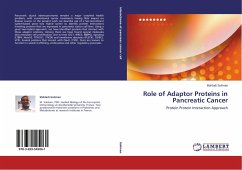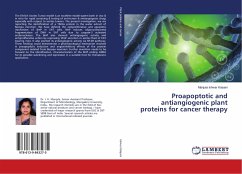Pancreatic ductal adenocarcinoma remains a major unsolved health problem, with conventional cancer treatments having little impact on disease course. In the present work we describe use of a Sos-recruitment system-based yeast two hybrid screen to identify protein interactions involving proteins that are expressed in pancreatic cancer cell lines. Using a yeast two-hybrid approach, we have identified proteins that interact with these adaptor proteins. Among them we have found several molecules that modulate cell proliferation and survival (CIZ1, BIRC6, RBBP6), signaling (LTBP4, Notch2, TOM1L1, STK24) and membrane dynamics (PLSCR1, DDEF2, VCP). Several proteins that nteract with (Vav2, ITSN1, Stac) are known to function in vesicle trafficking, endocytosis and other regulatory processes.







